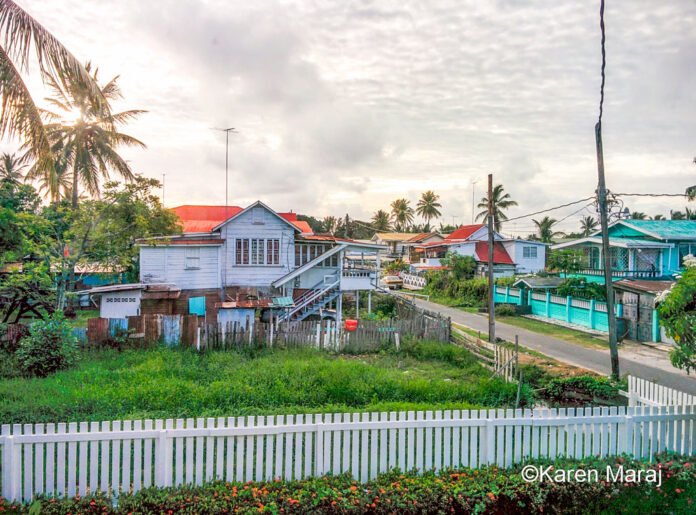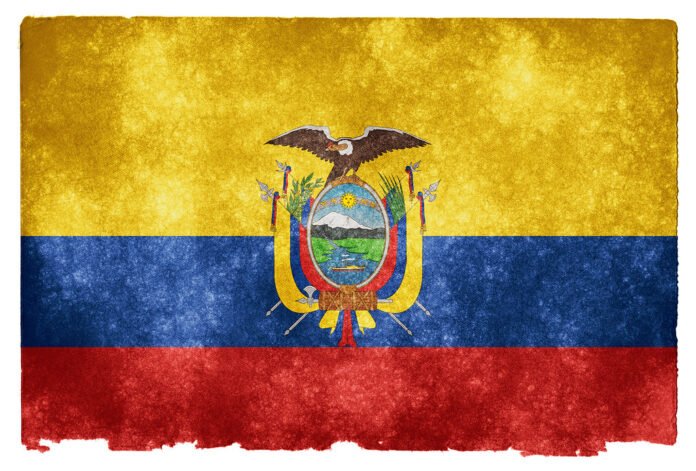Studying in another country is exciting, but it also comes with practical challenges. Health care is one of the most important. For overseas students in Guyana, getting the right health insurance can mean the difference between peace of mind and overwhelming stress during a medical emergency. Choosing an insurer is not as simple as picking a familiar name; you need to make sure that the plan you choose works in Guyana, covers common needs for students, and offers good value.
This article highlights ten well-known international or global health insurance providers often recommended for students and expatriates. It also explains what you should check before signing up, with a specific focus on Guyana. This is not a definitive top-ten ranking—because your choice will depend on your nationality, your university’s requirements, and your health needs. Instead, it’s a practical guide to help you evaluate strong candidates.
1. IMG / StudentSecure
IMG has built a strong reputation for international student coverage. Their StudentSecure plans are flexible, with different tiers that match budget and benefits. These include outpatient visits, emergency medical evacuation, and some coverage for mental health, which can be particularly important for international students adapting to a new environment.
For Guyana, the key is confirming whether local providers are part of IMG’s network. If not, you should ask whether they will reimburse out-of-network care and how quickly claims are processed. Since students may face upfront costs in Guyana, reimbursement speed is critical.
2. Cigna Global
Cigna is one of the largest global insurers, offering wide coverage with strong financial stability. They allow students to tailor benefits, including outpatient, dental, and wellness add-ons. Their global footprint makes them a familiar name for universities.
In Guyana, however, you need to check whether they have local agreements with hospitals. If not, you’ll rely on reimbursement. Also ask about medical evacuation, since advanced care may sometimes require transfer to Trinidad, Barbados, or the United States.
3. Allianz Care (International Student Plans)
Allianz provides dedicated international student packages. They cover general practice, outpatient treatment, emergency evacuation, and even repatriation of remains. Their add-ons are useful for students who want more comprehensive care, like dental or optical.
In Guyana, the critical factor is evacuation coverage. Guyana has basic health infrastructure, but complex care is limited. If your plan does not cover air ambulance services, you may face high out-of-pocket costs in emergencies. Allianz plans usually include this feature, but you should verify.
4. AXA (International / Expat Plans)
AXA is a household name in global insurance. Their expat and student plans often include strong emergency support and worldwide assistance lines.
For Guyana, AXA may classify the country as a higher-risk or “developing” region. This can affect premium costs or claim procedures. Be clear on how they treat coverage in South America. Also, check if they work directly with clinics in Georgetown, the capital, or if you must pay first and claim later.
5. NOW Health International
NOW Health is known for its digital claims tools and fast processing, which can reduce stress for international students. Their plans are competitive, with access to a global medical network.
For Guyana, confirm whether their promise of “cashless access” extends to local providers. If not, ask about their turnaround time on reimbursements. Students on tight budgets need to avoid paying large sums upfront while waiting for claims to be approved.
6. VUMI (Voluntary Universal Medical Insurance)
VUMI is popular among expatriates in Latin America and the Caribbean. They emphasize high-end coverage, including private hospitals and cross-border care.
For students in Guyana, this can be valuable because you may sometimes need to travel to nearby countries for specialized services. VUMI’s regional familiarity means they may have better evacuation partnerships, which makes them stand out compared to insurers less familiar with South America.
7. William Russell
William Russell focuses on personalized expat insurance. Their plans are well regarded for customer service, flexibility, and transparent terms.
In Guyana, you should confirm that their policies cover both routine and emergency care locally, as well as regional evacuation. William Russell is smaller than giants like Cigna or Allianz, but that can mean more personalized service when resolving claims.
8. Best Doctors Insurance
Best Doctors is unique because it emphasizes access to medical experts and second opinions, in addition to covering treatment. For students who want reassurance when facing serious medical conditions, this feature is helpful.
However, make sure they also cover direct hospital and doctor visits in Guyana. Sometimes their focus on advisory services overshadows the need for local, immediate care. Students should check carefully to avoid gaps.
9. RedBridge
RedBridge has stronger recognition in the Caribbean and Latin America. Their regional networks may be more practical than global providers that have limited local ties.
For Guyana, this could mean easier access to nearby clinics and smoother claim processes. Students should still ask about the scope of outpatient coverage and whether preventive care is included, since many plans focus only on emergencies.
10. Mondassur and Local Specialty Insurers
Mondassur offers international insurance with policies designed for expatriates and students in Guyana. Local insurers also provide options, though they may not always match global benefits.
One advantage of Mondassur and similar providers is local knowledge. They may better understand the health system and typical issues faced by international students in Guyana. These plans can also be used as supplements to global insurers, ensuring that everyday care is affordable and accessible.
Key Considerations for Guyana
Choosing the right plan involves more than comparing brand names. Here are ten practical factors you should weigh before deciding:
- Network Access
Verify whether the insurer works directly with hospitals and clinics in Guyana. If they don’t, ask how reimbursements are handled and how long they take. - Emergency Evacuation
Guyana’s medical system cannot handle all complex cases. A plan that includes air evacuation to another country is essential. - Country Classification
Some insurers categorize Guyana as high risk. This may raise premiums or limit benefits. Always read how your chosen insurer defines country zones. - Pre-existing Conditions
Clarify whether your conditions are covered. Some plans exclude them entirely, while others apply waiting periods. - Deductibles and Limits
Students should be cautious with high deductibles. Low premiums might look attractive, but you could face large bills for routine care. - Claims Process
Some insurers require you to pay upfront, then submit claims. Ask about turnaround times, as delays could leave you financially strained. - University Requirements
Some institutions in Guyana may insist on specific coverage. Check with your school’s international student office before buying. - Currency and Inflation
Medical inflation and exchange rates can change quickly. Choose a plan that accounts for these risks to avoid gaps in coverage. - Local Supplement Insurance
A small local policy can sometimes be added to cover dental, preventive visits, or routine check-ups at a lower cost. - Reputation of the Insurer
Look for insurers with strong financial ratings and positive reviews from students and expats. Avoid little-known companies with weak claim records.
Actionable Steps to Take Before You Buy
- Make a Shortlist
From the ten providers above, narrow down to three that fit your budget and coverage needs. - Contact the University
Ask whether your school has preferred providers or minimum requirements. This can save you time and avoid policy rejection. - Ask for Country-Specific Confirmation
Contact each insurer directly and ask, “How is Guyana covered under this plan?” Get their answer in writing. - Review Evacuation Clauses
Confirm whether evacuation is included, and to which countries. For example, can you be evacuated to Miami, or only to the nearest Caribbean hub? - Compare Premiums vs. Deductibles
Do the math. Sometimes a slightly higher premium saves you money in the long run if deductibles are lower. - Test Their Customer Service
Call their helpline. If they cannot answer clearly, consider it a warning sign. Students abroad need responsive insurers.
Why Insurance Choices in Guyana Require Extra Care
Guyana is developing quickly, but its healthcare infrastructure still has limits. Major hospitals are concentrated in Georgetown, leaving rural areas underserved. For international students, this means two things. First, you need insurance that guarantees access to care in the capital. Second, you must be prepared for situations where evacuation is the safest option.
Insurers familiar with Latin America and the Caribbean, such as VUMI, RedBridge, and Mondassur, may have practical advantages in Guyana. However, global insurers like Allianz, Cigna, and AXA provide broader stability and stronger international evacuation networks. The right choice often combines the security of a global insurer with the practicality of regional or local coverage.
Pro Tips
Selecting health insurance as an international student in Guyana is not just a bureaucratic step—it is a safeguard for your health and financial security. The ten providers listed here represent some of the most trusted names in global and regional insurance. Each has strengths, but their suitability depends on your circumstances.
The best strategy is to start with your university’s requirements, narrow down your options, and confirm directly with insurers how Guyana is covered. Pay particular attention to evacuation clauses, claims processes, and out-of-pocket costs. If necessary, combine a global plan with a local insurer to ensure both emergency protection and affordable day-to-day care.
Studying abroad should be about growth and learning, not about worrying over hospital bills. With careful planning and the right health insurance, you can focus on your studies and your life in Guyana, knowing you are covered if the unexpected happens.
References :
- International Medical Group. (2025). International student insurance (StudentSecure). Retrieved October 4, 2025, from https://www.imglobal.com/international-student-insurance
- Cigna Global. (2025). International student health insurance. Retrieved October 4, 2025, from https://www.cignaglobal.com/students
- Allianz Care. (2025). International student health insurance. Retrieved October 4, 2025, from https://www.allianzcare.com/en/personal-international-health-insurance/who-we-help/students.html
- International Citizens Insurance. (2025). The 10 best international health insurance companies [2025]. Retrieved October 4, 2025, from https://www.internationalinsurance.com/health/best-companies
- Pacific Prime. (2025). Best international health insurance plans for expats in Guyana. Retrieved October 4, 2025, from https://www.pacificprime.com/blog/top-guyana-insurance-companies-expats.html
- Mondassur. (2025). Guyana international insurance. Retrieved October 4, 2025, from https://www.mondassur.com/en/health-insurance-guyana
- Insurancy. (2025). International health insurance for Guyana comparison. Retrieved October 4, 2025, from https://www.insurancy.de/en/international-health-insurance/guyana-comparison


